
Living Tongues Institute for Endangered Languages, a leading non-profit research organization based in the US with researchers located around the globe, stands at the intersection of linguistics and community activism. Our team has the capacity to launch technological solutions that help aspiring language activists and scholars alike. We are pleased to partner with living-language-land to help bring awareness to the issue of language endangerment leading up to COP 26.
Since 2005, researchers from the Living Tongues Institute have visited more than one hundred endangered language communities in fifteen countries. Since 2019, our team has reached over 200 more activists in 20+ countries through virtual events and workshops. Our researchers conduct documentary linguistic fieldwork, publish scientific papers, present at academic conferences, run digital training workshops to empower language activists, and collaborate with speakers to release web tools that benefit documentation and revitalization efforts. Our collaborators and teams have created more than 225 online Living Dictionaries to support threatened and low-resource languages. We have also provided free digital training sessions as well as technical and scientific support to many collaborators around the globe.
With over 3,000 languages in danger of being lost before 2100, we know there is a strong need for comprehensive, free online tech tools that can assist language communities. A moral imperative of the 21st century is the decolonization and democratization of linguistic resources. Online dictionaries should reflect the user communities, and citizen-linguists should have a primary role in developing them. Living Dictionaries provide a simple way to create high-quality multilingual documentation records.
As activists in the field of endangered language documentation globally, we know that colonization has caused thousands of language communities to become disenfranchised. Most countries are not investing in resources needed to support minority languages. Through the Living Dictionaries platform, we aim to obviate institutionalized barriers that prevent equal status and equitable treatment of all forms of linguistic communication. One of our main goals is to expand the online platform to serve all of the 3,000+ threatened languages in the world by 2050.
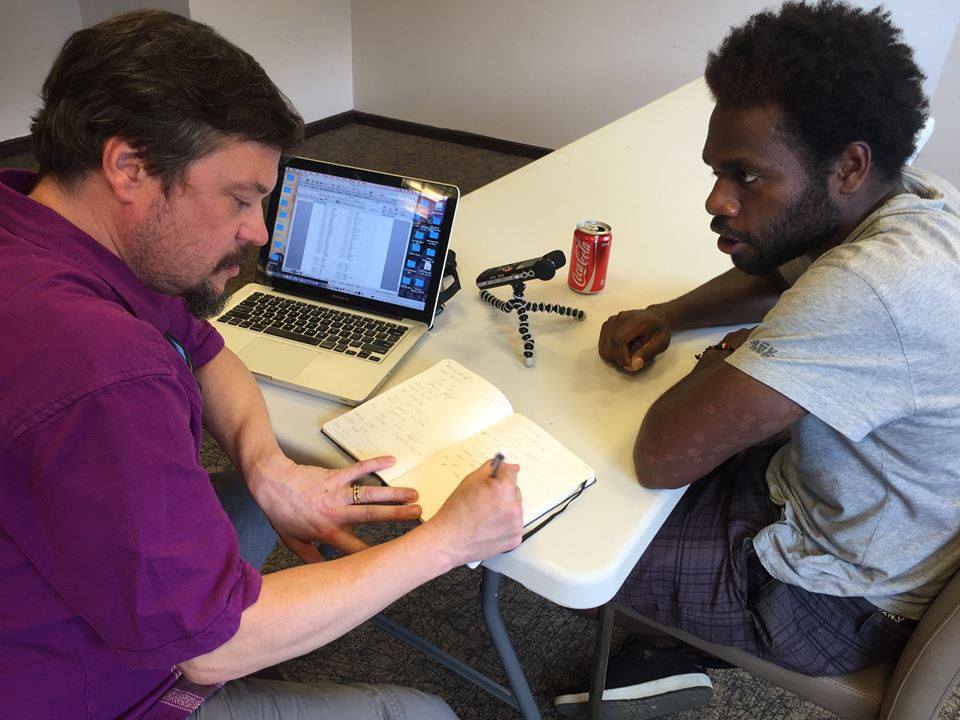
Dr. Greg Anderson and Martial Wahe build the first-ever Nafe online dictionary on Tanna Island, Vanuatu 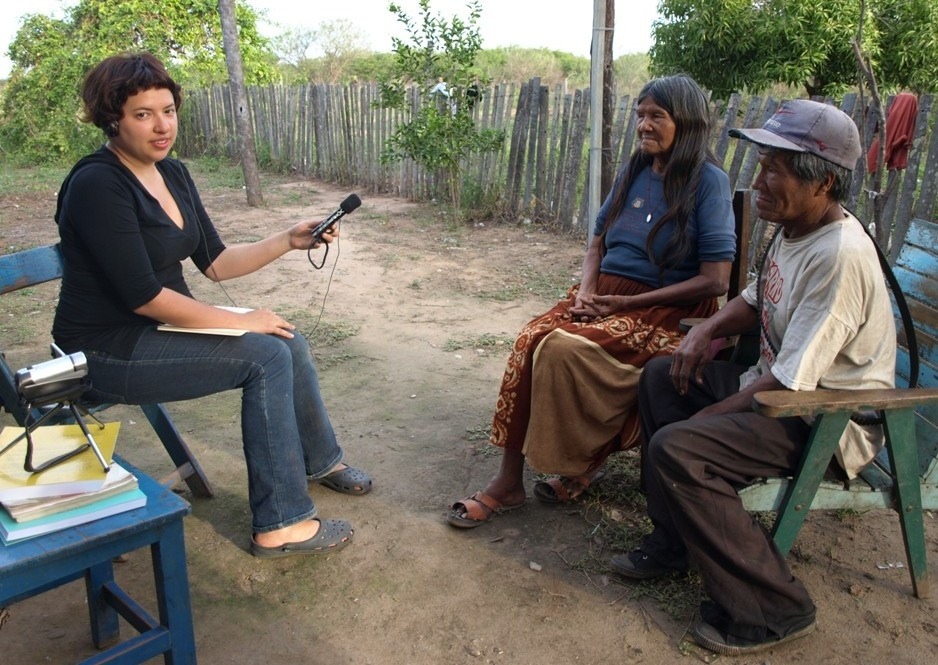
Anna Luisa Daigneault interviews Ayoreo speakers Peje Picanerai and Ige Carmen Cutamijo in Paraguay 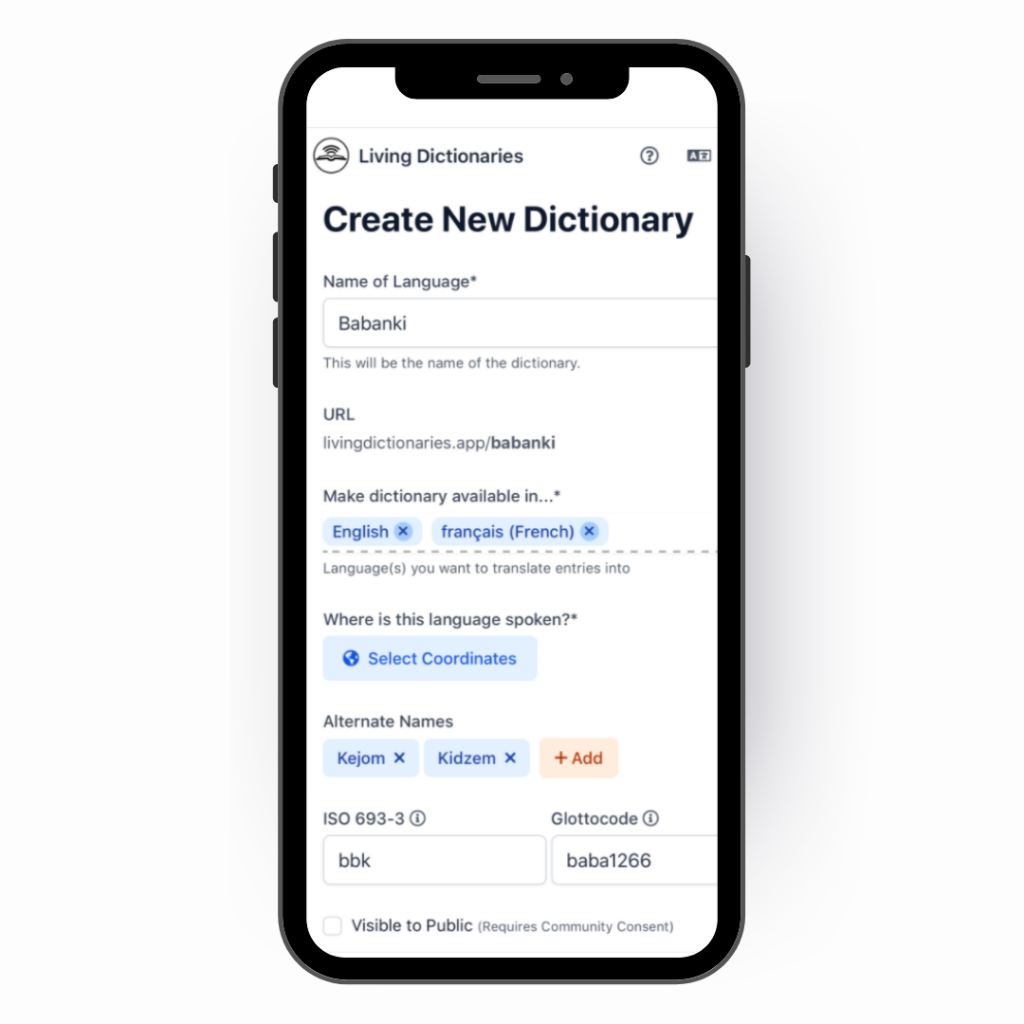
Mobile View of Babanki Living Dictionary Creation 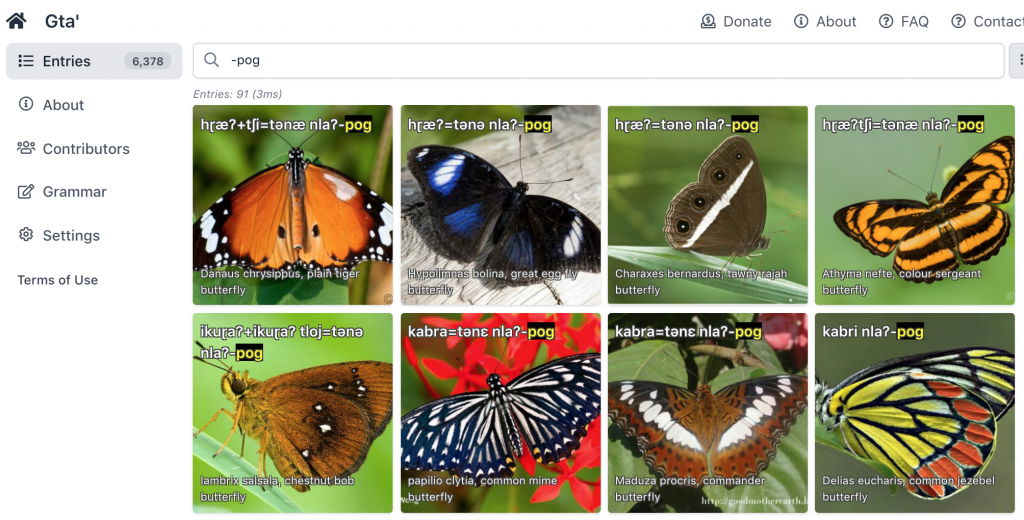
Gta’ Living Dictionary (India) -pog bug morpheme 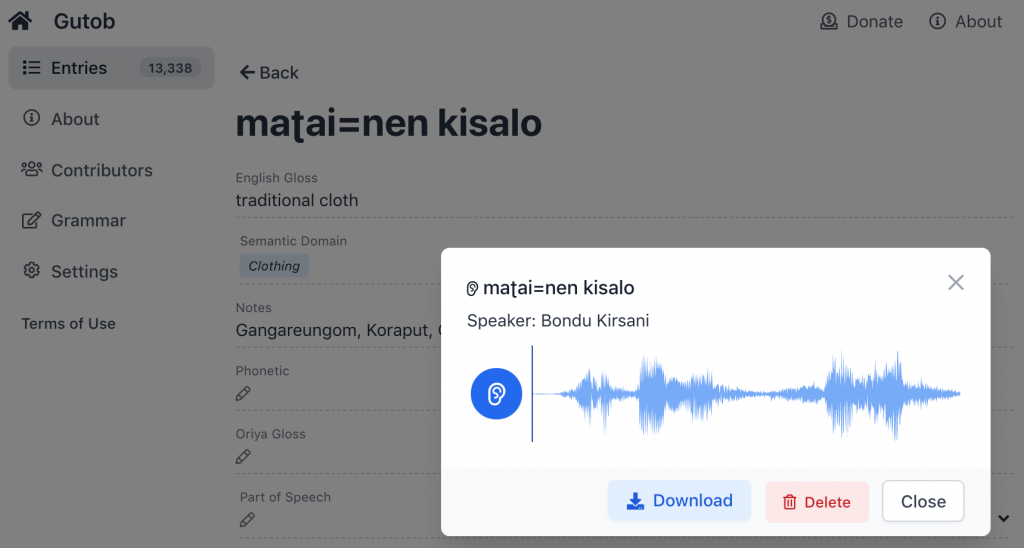
Gutob Living Dictionary (India) – Audio Waveform


